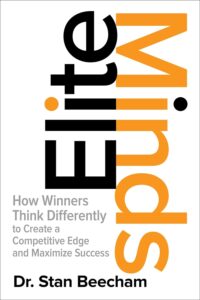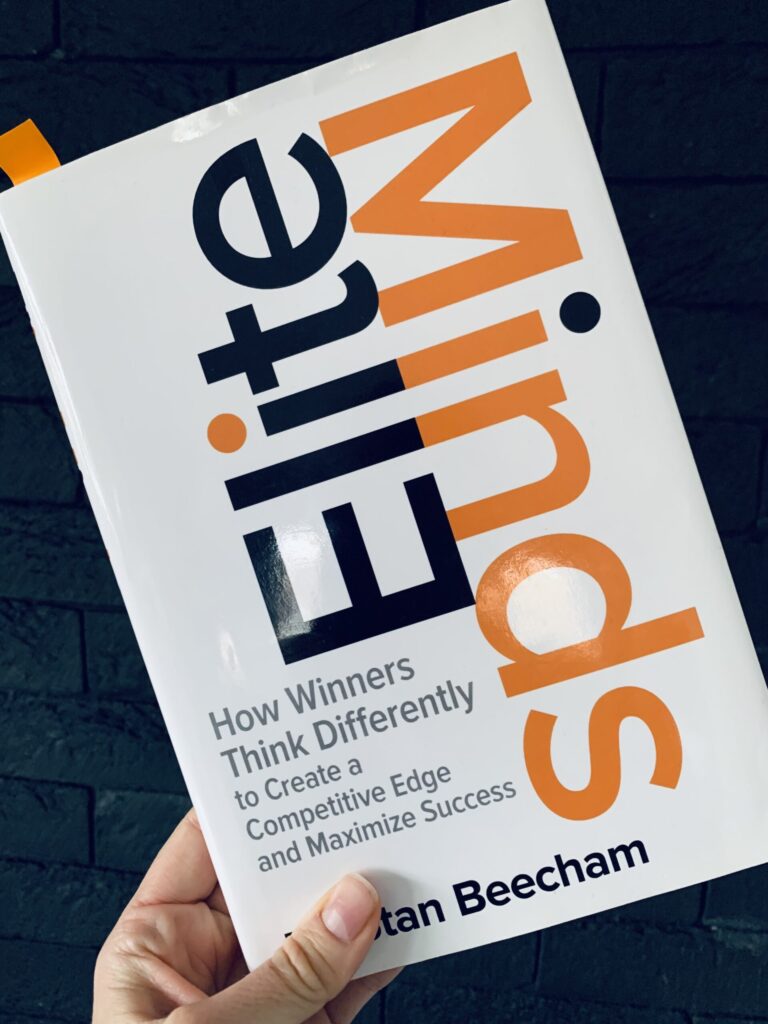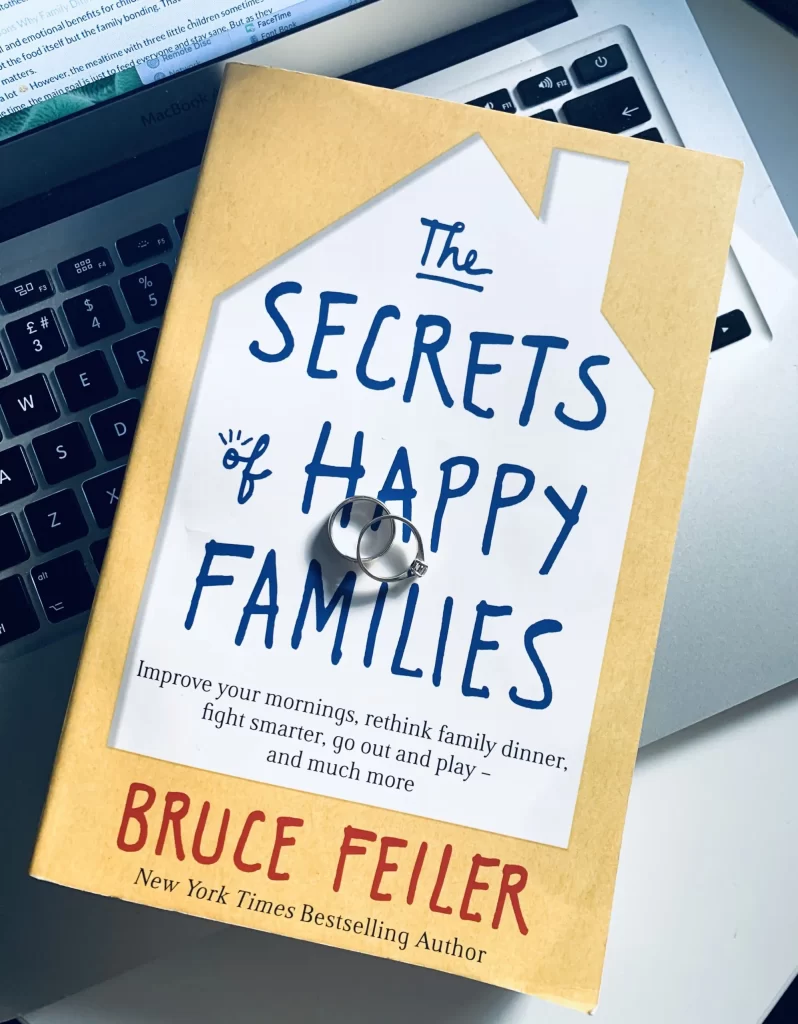 Elite Minds
Elite Minds
How Winners Think Differently to Create a Competitive Edge and Maximize Success
Dr. Stan Beecham
McGraw Hill (16 Oct. 2016)
About the Author
Dr. Stan Beecham is a world-renowned sports psychologist working with business leaders and professional athletes from many sports to help them get the most out of their talent by optimizing their mental performance. He is the director and founding member of the Leadership Resource Center in Atlanta, Georgia.
About the Book
“The debate continues, whether it’s in business or competitive sport: How much of one’s performance is based on physical ability, and how much of one’s performance is based on mental acuity? Perhaps Yogi Berra said it best when he explained, ‘Baseball is 90 percent mental, and the other half is physical.’ From where I sit, the view’s a little different. I believe the degree to which one performs and the level of success one achieves is 100 percent mental.
Why?
Because the mind is in control of the body.
This is not my opinion—it is scientifically verified by those who have studied the brain-mind complex for decades. Your brain is your software, your body the hardware. Simply put, your body does what your brain tells it to do or what your brain thinks your body is capable of doing. […]
In fact, talent and experience alone will never lead to a sustained high level of performance—especially at the elite level in any given field.
The problem with this approach is that everyone is talented and has years of experience at the elite level. Who then performs the best when the advantages of talent and experience are mitigated?
The answer is simple: the person whose mind is an asset, not an obstruction. The competitive advantage at the highest level is overwhelmingly mental, not physical. I see this every day.”
My husband, Dawid, is a former pro rower and a certified sports psychologist. He is basically my backstage pass to the world of sports. But here’s the thing—even though I always had a hunch that professional athletes are probably the go-to gurus for mastering peak performance, I never cracked open a book written by a sports psychologist. That is, until recently.
My journey began with Jim Afremow’s fantastic book, Champion’s Mind. Fired up by that, I swiftly dove into Stan Beecham’s Elite Minds. And let me tell you, it was so good that my highlighter surrendered before I finished.
Stan Beecham is a top-level sport psychologist and performance consultant working with elite athletes across various sports. And in this book, he masterfully sheds light on “how winners think differently to create competitive edge and maximize success.”
Now, I’d say Elite Minds isn’t just a read—it’s a brain-rewiring experience. Seriously. Packed with motivation, inspiring stories, and practical advice, it delivers a profound lesson: our mind holds the key to mastering our body. To perform at our peak, we must harness our mind’s potential to our advantage.
As you can imagine, it’s packed with fantastic ideas, and I can’t wait to share some of my favourites with you.
Let’s jump in.
Key Insights:
Change Your Beliefs to Maximize Performance
“Belief is unconscious—it’s where what we hold true about ourselves resides. This is also our source of emotion. Though we do not consciously choose our emotional response to events, our emotional response is ultimately dictated by our belief system.
If your emotions are in charge, you will never fully know yourself, and you will never reach your potential in a performance environment. That said, the best way to improve your emotional state is to first examine and correct your belief system.”
Dr Beecham kicks off the book by explaining how our mind works. His main message is: “In the battle of mind versus body, mind always wins!”
That’s why if we want to win big in sports and in life, we must constantly challenge our mind.
Now, there are three components necessary to improve performance: Beliefs, Thoughts and Behaviours.
Here is a quick look at them:
- Beliefs: From our early days, we adopt beliefs from others. Quietly nestled in our unconscious mind, they powerfully steer our thoughts and actions. Changing beliefs is like turning a big ship, not easy but doable.
- Thoughts: our thoughts are conscious and are usually a by-product of our beliefs (although we can have thoughts inconsistent with our belief system). Changing thoughts is a bit easier than beliefs, so we need to put our energy into improving our thinking. Ultimately, we can change our unconscious beliefs through conscious thinking.
- Behaviours: Simply put, this is what we do. Behaviors range from long-term habits to short-term actions. Habits are tough to crack, but if we take action on a regular basis, it will lead to a long-term change.
The bottom line is that if you tweak one—beliefs, thoughts, or behaviours—the others will follow suit. To unlock peak performance, we’ve got to sync all three.
While each component plays a vital role, beliefs are the North Star:
“What you believe is the most important thing in the world to you. Your beliefs about what is possible and impossible will dictate your behavior and, ultimately, your success.”
Now, some beliefs are our cheerleaders, while others are the hurdles (aka limiting beliefs). Dr Beecham writes:
“Your current performance, whether you are an employee or an athlete, is the sum of your belief system, which is subconscious (that is, it is made up of beliefs you do not actively think about whether or not you know the basis of those beliefs). Great bosses and coaches affect the belief system of their subordinates via the conscious process. This too is where you can begin if you want to be your own best boss or coach.”
So, to perform at our best, we must first question our “limiting beliefs” by asking ourselves: “How do I know it’s true? What evidence do I have to demonstrate this truth?” That means we must admit that what we previously believed was wrong or no longer true. Keep digging for the truth about yourself and your beliefs.
Now, here’s a challenge for you: what are your top 5 limiting beliefs? Question them!
Replace Better With The Best
“If we decide to let better go, what do we replace it with? I recommend we pursue our best, instead of better. The problem with better is that it’s a subjective judgment. When someone tells you that you can or should do better, you are not encouraged by that critic. Instead, you feel judged. Additionally, when we tell ourselves we should do better, we are also critiquing ourselves, judging ourselves as not enough.
This type of judgment is not helpful when growing and developing skills. I frequently ask the groups I speak with to think of the best career advice they ever received. Once they have identified an answer, I ask them to categorize the statement into either an encouragement or a criticism. Consistently, the vast majority of the group reports the best advice they ever received came in the form of an encouragement.
Better is a criticism; best is an encouragement.
What most of us desperately need is not to get better and tell ourselves we aren’t good enough. Instead we need to tell ourselves to do the best we can and that will be enough.”
I just love this concept. And it applies to all areas of life.
When you commit to being the best – an athlete, entrepreneur, spouse, friend, or parent – you simply show up and put in the hard work without wasting energy on self-doubt.
And Dr Beecham emphasizes that pursuing ‘better’ makes finding our best a struggle. So, our goal should always be to strive for the best.
Now, it’s your turn – remember the times you performed at your best. How did it feel? How can you tap into that more often?
P.S.: This mindset is what we’re instilling in our kids – one of the key mantras in our Family Manifesto is “Do your best and forget the rest.”
Set Expectations (To Win)
“Everyone wants a medal, but only those who truly believe they will get a medal have a chance. Wanting a medal is a conscious desire. Expecting to medal is an unconscious belief. There’s a big difference between the two.”
This concept blew my mind. It’s not sufficient to just WANT a medal; you’ve got to EXPECT to win. This mindset does a complete 180 on your game.
When you EXPECT a medal, you automatically gear yourself up for success. You start strategizing about what needs to be done before the competition to secure that win. Your commitment and effort soar.
“If you don’t expect to win, then you have disqualified yourself before the event even begins. You have handicapped yourself out of having a fair chance to win, and you have given the field a head start and unfair advantage.”
And here is another kicker:
“Your expectation is the determinant – not your coach, your mom, or your teammates, but you. It’s true that you get what you settle for.
Whether you think you are lucky or unlucky, you’re right!”
Expect to win. Expect to have a lucky day. Expect to perform at your absolute best.
And remember that you are in control of your future and in control of your thoughts and emotions that help you reach your goals.
Face Your Fear Like a Hero
“The people who acknowledge that they have a limited amount of time and live with a sense of urgency have the best chances of living to their full potential. A fear of death is the same as a fear of life. Fear is fear, even though it comes in all shapes and sizes and 31 different flavors.”
Fear, whether big or small, is the obstacle keeping us from our best selves, hindering our potential. So, the ultimate life goal? Conquering fear.
Dr Beecham lays it out bare: there is no proven recipe for success – no checklist, no GPS, no guarantee, nothing. We have to cut our own path in the woods, and fear is the hurdle that threatens to hold us back.
Now. If we want to succeed, we must understand one important truth: we’re all handed the same 24 hours daily. So it’s all about valuing our time and using it efficiently. The key? Summoning the courage to face our fears. And that courage is fuelled by a profound sense of purpose and expectations for our lives.
P.S.: Need a nudge to cultivate urgency? Check out our notes on The Tools by Phil Stutz and Barry Michels, particularly Tool #5 – Jeopardy!
P.P.S.: Susan David’s brilliant book, Emotional Agility, offers insights on facing fears and showing up authentically – check out our notes.
Become The Person You Want to Be
“If you have not reached your full potential but want to, then you must first acknowledge that you have not reached your full potential. Understanding the relationship between the “do” and the “be” is imperative, and how you spend your time is absolutely critical to what you want to be.
I encourage people to forget about what they want to have or possess—it’s a waste of time. The same goes for awards and honors.
Forget about them. They will not help you improve your performance.
Instead, become obsessed with how you spend your time, the choices you make, and who you hang out with. Kids, you should measure the amount of time you spend working out, reading, doing homework, playing video games, etc. Adults, you should measure the amount of time you spend at work, in traffic, talking to your kids, waiting at the airport, etc. Because how you spend your time will dictate what (and who) you ultimately become.”
Dr. Beecham dives into Chapter Three with a powerful question: What do you want?
It’s a simple question, yet many struggle to answer. So, he shares a powerful framework for self-reflection:
- What do you want to Have? These are the material desires that we believe will enhance our lives.
- What do you want to Do? Or, in other words, how do you like to spend your time? What activities do you enjoy the most? This question is super important as our time is limited, and we have to ensure we use it wisely. Champions value their time more than money or material goods.
- What do you want to Be? Before you answer this question, ask yourself, “Who am I?” Be honest and tell the truth about yourself. The thing is that if you want to navigate your life towards success, you must pinpoint your current location.
The bottom line? To find your best self, master the art of using your time effectively.
Now it’s your turn – grab a piece of paper and write down what you want. Be brutally honest!
P.S.: In the book, there’s a whole chapter on the power of WHY. Stan stresses that intentions supersede goals. Goals aren’t about what and how but WHY (the Big Why). Once you understand your WHY, you can achieve big and frightening goals.
How To Do Impossible
“If you commit to doing all that is possible each and every day, a wonderful and marvelous thing will happen to you. You will have the ability to make the impossible possible simply by doing possible. Notice what changes in this: not the world, but you.”
In the book, Dr. Beecham shares the tale of St. Francis of Assisi, founder of the religious order of Franciscans, imparting a crucial lesson on success:
“First do what is necessary…Then do the possible…And then you will find yourself doing the impossible.”
So here is the breakdown:
- Spend time on the fundamentals: master the basics of your craft, business, or sport. Tackle the “have-to” stuff, and complete your “to-do” list. That’s what necessary means.
- Once you have fundamentals in place, challenge yourself to see what you are capable of – the possible. It demands full attention, unwavering commitment, and a refusal to retreat to the safety of the necessary. It’s about stretching and expanding your comfort zone, every single day.
- Once you realize that anything is possible, you will find yourself doing the impossible.
A fantastic lesson on the power of the compound effect!
Action Steps For You
- Revise Your Belief System: Take a deep dive into your current belief system. Identify beliefs that may be limiting your potential or hindering your progress. Challenge these beliefs by asking yourself probing questions like “How do I know it’s true?” and “What evidence supports this belief?” Acknowledge that beliefs are not fixed and can be revised (enter – growth mindset). Embrace empowering beliefs that align with your goals and the person you aspire to be.
- Set Expectations to Win: Shift your mindset from merely desiring success to expecting it. Cultivate an unwavering belief that you are capable of achieving your goals. Visualize yourself succeeding and winning regularly. As you approach tasks or challenges, set high expectations for your performance and do your best every day.
- Get Clear on What You Want: Explore your priorities by getting crystal clear on how you want to spend your time and who you aspire to become. Define the activities and pursuits that align with your values and contribute meaningfully to your growth. Reflect on your long-term vision, identifying the characteristics and qualities you want to embody.
Quotes From The Book









